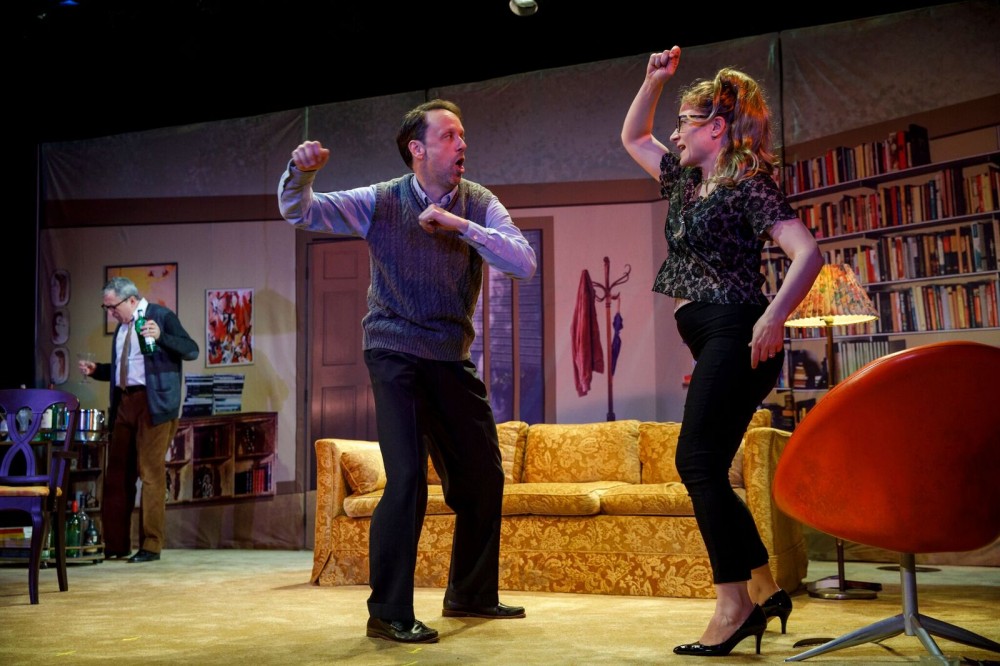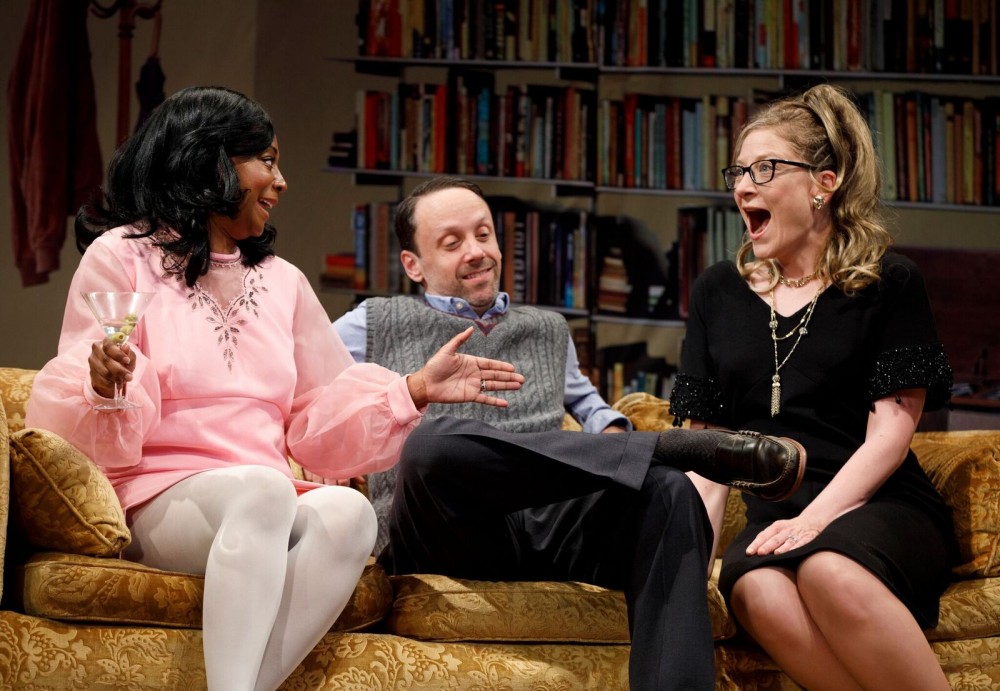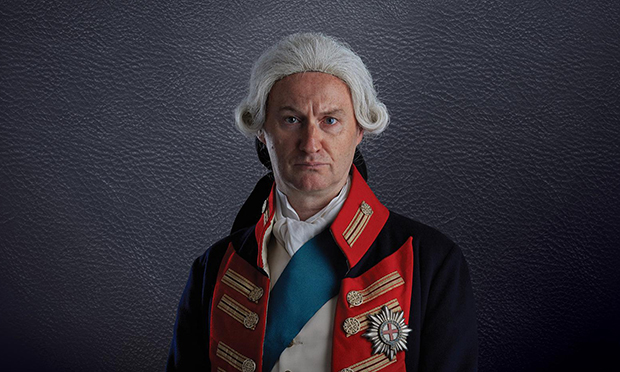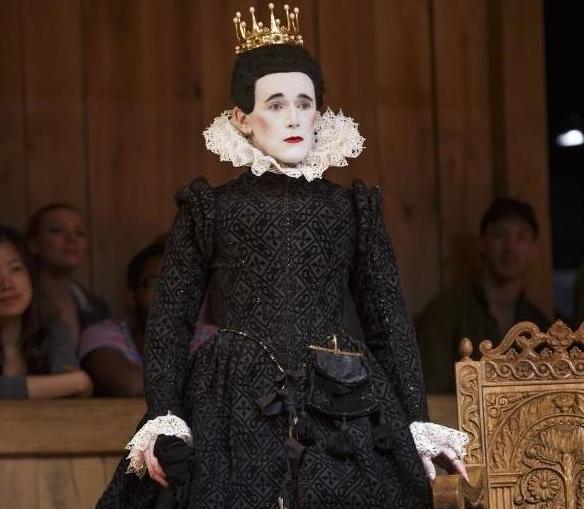by Carol Rocamora
Elevator Repair Service, that devilish New-York-based company, is up to its tricks again – namely, hijacking existing written works and turning them into theatrical gold. Past source material has run the gamut from Fitzgerald, Hemingway, Faulkner, to – of all things – a Supreme Court ruling.
This time, ERS’s literary heist is Who’s Afraid Of Virginia Woolf, Edward Albee’s 1962 masterpiece on the tragedy of marriage and childlessness. Albee’s play has unleashed the unbridled imagination of actress/playwright Kate Scelsa, one of ERS’s members, who has turned it into a hilarious parody, standing the play on its head and lampooning its male and female stereotypes. The result is Everyone’s Fine With Virginia Woolf, a wild and wonderful romp that will make your head spin (as well as your belly ache from laughing).
Scelsa’s wild parody is both an affectionate homage as well as a blazing assault on Albee’s classic, which features a middle-aged husband and wife in the mire of marital misery. You know the story (so no spoiler): George and Martha, an academic couple on an American college campus, get through one liquor-soaked night with their favorite self-destructive ritual – telling the story of their imaginary son. On this night, their audience is another unhappy, infertile couple named Nick and Honey.
In particular, Scelsa turns her feminist guns on Albee’s depiction of Martha as a kind of Medusa-like, emasculating monster – by making George and Martha gay. “I’ve never been pregnant – not even with an idea!” Martha announces, as their unsuspecting victims walk in the door. “Keep it gay in here,” George warns their guests. “She likes gay.”
And that’s just for starters.
The play spins wildly out of control from the moment Albee’s opening line (“What a dump!”) is uttered. Scelsa leads us “through the looking glass” into an altered absurdist world, where she loosely follows Albee’s plot in Act I, but substitutes Albee’s dialogue with her own. George (who teaches Tennessee Williams’s plays, in Scelsa’s version) announces: “Williams is like Shakespeare – it should only be performed by men”. He promptly assumes the roles of Blanche (A Streetcar Named Desire) and Maggie (Cat on a Hot Tin Roof) alternately, while Nick fantasizes about carrying a baby in utero (in Albee’s original, Honey was the one with the hysterical pregnancy). There’s story-telling, role-playing, role-switching, couple-swapping, till you don’t know which end is up (nor should you). And that’s only Act One.
As for story-telling, Nick has written a gothic tale, scenes of which constitute Act Two, in which a new character is introduced – a Ph.D. candidate (Lindsay Hockaday) who turns into a vampire (not featured in Albee’s original, obviously). Thunder booms, the stage explodes, and….well, I won’t spoil the rest of this 75-minute rollercoaster ride. (You wouldn’t believe it if I described it, anyway.)
There’s also a clever satirical dimension to this riotous romp. It’s also a self-parody of literary obsession – including current trends like “fan fiction” and “flash fiction.” There are also numerous random references to authors (Woody Allen), plays (Miller’s All My Sons) characters (Ibsen’s Hedda and Nora), and my favorite – Harry Connick Jr. (what’s he doing in this play?!)
Scelsa wrote the play expressly for ERS ensemble members, whose roles fit like kid gloves. As Martha, Annie McNamara is hilarious with her “big hair” and foul mouth. As George, Vin Night wears a perpetual expression of surprise (do you blame him?!) and performs Williams’s female roles with relish. Mike Iveson is deliciously nerdy as Nick, and Honey (April Matthis) is the one voice of reason (she’s smart to leave at the end of Act One before the trouble really starts). All this mayhem is directed with panache by the audacious and adventuresome John Collin, ERS’s Artistic Director, who fuels the production’s boundless energy and unpredictability.
Since it was founded in 1991, the Obie-award-winning ERS has generated 19 original productions, and is now a New York treasure. One of these days, someone’s going to coin a worthy phrase to describe the unique comedic sensibilities of the ever-inventive ensemble and its fearless founder. Phrases like “off-the-walls,” “off-the-rails,” “madcap,” “absurdist,” or “screwball” just don’t do them justice.
For now, let’s borrow from Shakespeare’s As You Like It: “O wonderful, wonderful, and most wonderful wonderful…”
Photos: Joan Marcus
Everyone’s Fine With Virginia Woolf, by Kate Scelsa, performed by the Elevator Repair Service
The Abrons Art Center till June 30.

























